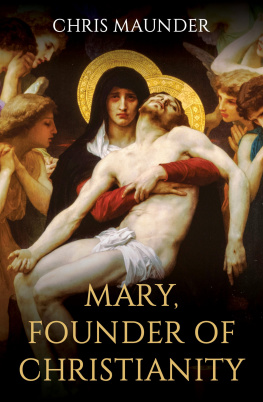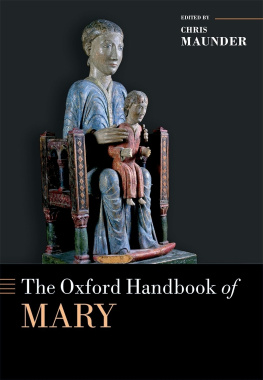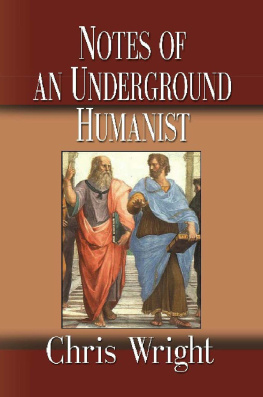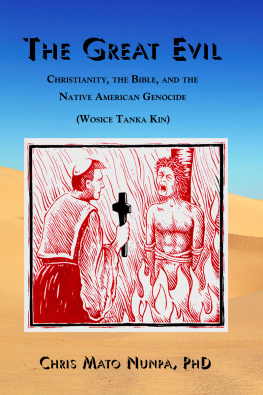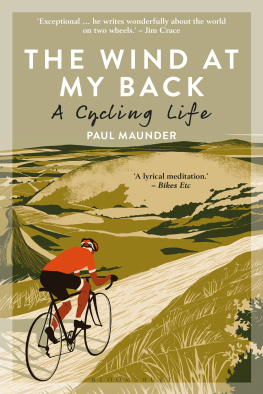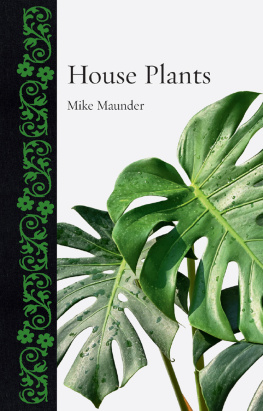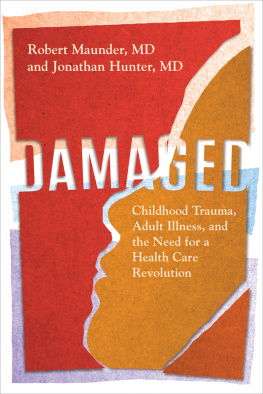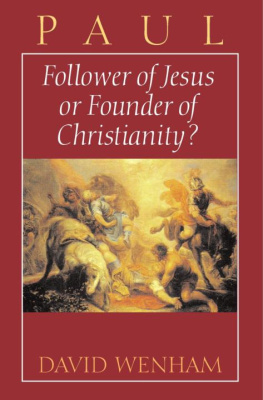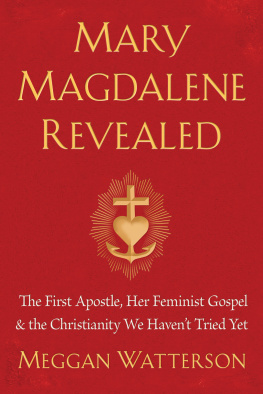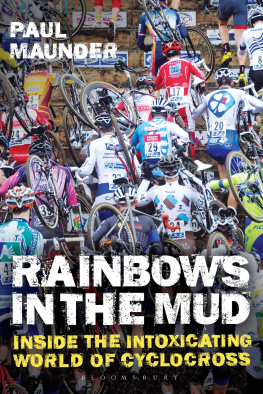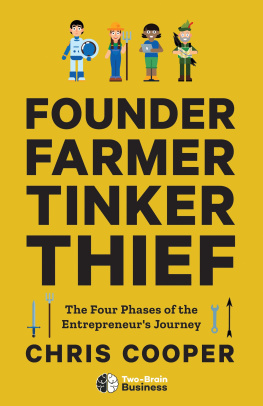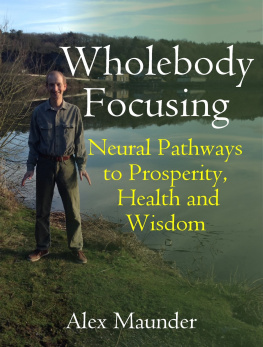Chris Maunder - Mary, Founder of Christianity
Here you can read online Chris Maunder - Mary, Founder of Christianity full text of the book (entire story) in english for free. Download pdf and epub, get meaning, cover and reviews about this ebook. year: 2022, publisher: OneWorld, genre: Religion. Description of the work, (preface) as well as reviews are available. Best literature library LitArk.com created for fans of good reading and offers a wide selection of genres:
Romance novel
Science fiction
Adventure
Detective
Science
History
Home and family
Prose
Art
Politics
Computer
Non-fiction
Religion
Business
Children
Humor
Choose a favorite category and find really read worthwhile books. Enjoy immersion in the world of imagination, feel the emotions of the characters or learn something new for yourself, make an fascinating discovery.
- Book:Mary, Founder of Christianity
- Author:
- Publisher:OneWorld
- Genre:
- Year:2022
- Rating:4 / 5
- Favourites:Add to favourites
- Your mark:
- 80
- 1
- 2
- 3
- 4
- 5
Mary, Founder of Christianity: summary, description and annotation
We offer to read an annotation, description, summary or preface (depends on what the author of the book "Mary, Founder of Christianity" wrote himself). If you haven't found the necessary information about the book — write in the comments, we will try to find it.
Mary, Founder of Christianity — read online for free the complete book (whole text) full work
Below is the text of the book, divided by pages. System saving the place of the last page read, allows you to conveniently read the book "Mary, Founder of Christianity" online for free, without having to search again every time where you left off. Put a bookmark, and you can go to the page where you finished reading at any time.
Font size:
Interval:
Bookmark:


For Natalie, fellow pilgrim, with love
There has been an increasing interest in the women in the New Testament over the last few decades as we become more aware of the marginalization of women in all religions and traditions around the world, and in their texts. No woman has attracted more attention and discussion than Mary, the mother of Jesus. In this book, I ask the following question: how important was Mary in the foundation of the Christian faith, and what did she contribute?
The thinking behind the book goes back to the 1980s and has been developed in articles that I have written in The Month (December 1996), Mary: the Complete Resource (edited by Sarah Jane Boss, 2007), Origins of the Cult of the Virgin Mary and The Oxford Handbook of Mary (both edited by myself, 2008 and 2019). In this book, I want to bring the conclusions together and offer them to a wider audience than those who read academic literature.
Despite being a member of the Catholic community, I will not be starting out from the point of view that Catholic or Orthodox doctrines are absolute and not to be questioned. I will be going back to first principles, exploring what the New Testament has to say about Mary and following contemporary directions in biblical studies.
There is a centuries-old definition, attributed to Anselm from the end of the eleventh century, of theology as faith seeking understanding. I am a person of Christian faith; for many years I have taken an active part in Marian devotion, partaking in pilgrimage and helping to maintain a medieval chapel dedicated to Mary in my hometown. At the same time, I have spent over three decades as an academic researcher into Mary and her shrines and apparitions. Even as I honour Mary in daily prayer and practice, I also want to understand the traditions about her intellectually as well as spiritually and emotionally. Honest reflection leads me to believe that there are many challenges in some of the ways that she has been regarded over the centuries, and that there is no disrespect in posing some searching questions about Mary as a person who lived in history and who is represented in the New Testament.
I completed this book during the coronavirus lockdown of 20201. Therefore, the person to whom I am most indebted for supporting me in writing it is my wife, Natalie. She has been a constant help throughout and has read the manuscript, offering advice. I would also like to thank York St John University, where I worked from 1992 to 2020, for creating an environment in which research is encouraged and facilitated, and the Centre for Marian Studies, founded in 1995, for providing friends and colleagues with passion for the study of Mary that complements my own. Finally, I am most grateful to the publishers, Oneworld Publications, for placing their trust in me while responding promptly and helpfully to all my questions.
Mary the mother of Jesus of Nazareth is as important in the world today as she has ever been. Christianity continues to grow as a global religion. Among Roman Catholic and Eastern Orthodox communities, and others which are associated with them, Mary continues to be revered and venerated. It would be true to say that, while Jesus Christ as God Incarnate is at the centre of the Christian faith, Mary is indispensable to an understanding of Jesus in the many branches of the Catholic and Orthodox Churches. Belief in the Incarnation means that the context in which Jesus lived is important, as a Jew growing up in Galilee in the Roman Empire under Augustus and Tiberius, and as the son of Mary. Protestants also understand that Mary plays an important part in the Christian story as proclaimed in the New Testament, even if, generally, they do not share the devotion that she inspires in other denominations.
This book sets out to ask the question who was Mary? based on an investigation of the New Testament texts, just as many others have done but in a new and radical way, taking into account modern trends in biblical studies. Major theological, political, and social developments have changed the way in which we approach the Bible. There are many interesting questions that can be asked about the virgin conception of Jesus and Marys contribution to Jesus ministry. There is also an interesting and long-standing mystery concerning Marys involvement in the events of the crucifixion, burial, and resurrection of Jesus. The answers suggested in this book will cast a new light on Marys role in the story of Christian salvation.
In world religions and philosophies, we are used to the idea of a founder. Jesus Christ, Muhammad, and Gautama Buddha stand at the origin of great world religions. Abraham is the forefather of the Jewish tradition, and Moses the one who received and established the Torah . Confucius could be said to have founded a philosophy rather than a religion; perhaps that is true of Buddha too. Zoroaster was the founder of a smaller but still influential religion named after him. Western philosophy looks back to Socrates, Plato, and Aristotle, who created the baseline for everything that came after them. More recent philosophers have also created traditions that acknowledge them as founders: Descartes, Kant, Hegel, and Marx, for example. Eastern philosophers as founders of systems of thought include Sankara and Ramanuja.
When you ask people to name a woman who founded a religion, they struggle to answer. You can suggest Ann Lee, who brought the Shakers into being, the Fox sisters, unwitting originators of Spiritualism, Madame Blavatsky for Theosophy, and Mary Baker Eddy for Christian Science. These are new names to many. Even to those who have heard of them, how much more marginal these movements appear beside global religions and philosophies! This, of course, reflects our patriarchal world in which initiatives in society, politics, and religion have been thought to reside within the province of males.
This book argues that the global religion with the most adherents, Christianity, has its origins in the mission and vocation of its most famous female, Mary the mother of Jesus, along with other women who accompanied her, including Mary Magdalene. Despite the often-held assumption that the Bible says little about Mary, there are plentiful signs in the New Testament that she preceded and inspired her son in the emergence of a new faith, planted in Jewish soil but eventually extending to all regions and peoples of the globe after its adoption by the Roman Empire.
It is easy, in a patriarchal religion focused upon a male saviour, to fall back on a general principle that behind every great man you find a good woman, or some such words. This presupposes that the male is primary in the events, and that the contribution of the female must therefore be subordinate or secondary. This is the assumption of the social world into which Jesus and Mary and their associates were born, and it has survived almost to our own times. In this thinking, Mary was the stereotypical good mother in a male-dominated world: loving and well-meaning, not always understanding what men must be about, prioritizing the safety of the family over urgent social and political projects, and therefore subject to the heartbreak of having her concerns and fears dismissed and then realized. This, of course, was always a stereotype, even in the first century. However, it does intrude into the New Testament and the way in which it has been interpreted in Christian tradition. But there is much more to it. Recent important changes in the way that we conceive of the relationship between the genders (changes which are still slowly coming to pass across the world with much resistance) mean that we can consider afresh the role of females in the formation of the Christian faith, and the pleasant surprise is that the gospels themselves contain clear indications that will help us do this.
Font size:
Interval:
Bookmark:
Similar books «Mary, Founder of Christianity»
Look at similar books to Mary, Founder of Christianity. We have selected literature similar in name and meaning in the hope of providing readers with more options to find new, interesting, not yet read works.
Discussion, reviews of the book Mary, Founder of Christianity and just readers' own opinions. Leave your comments, write what you think about the work, its meaning or the main characters. Specify what exactly you liked and what you didn't like, and why you think so.

